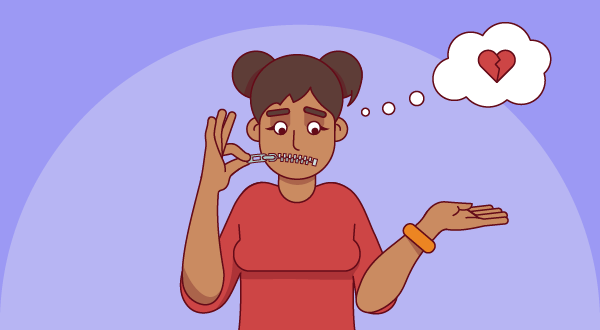Wil Schroter

Founders don't get the luxury of sharing openly — at least not without consequences.
Unfortunately, we learn this lesson the hard way, from acting and sharing like we used to do as an employee, only to find out that Founders don't get the same "safe space" we once enjoyed as employees.
Our startups are now a complex web of relationships, responsibilities and again, consequences that we need to understand and respect every time we're about to open our mouths about, well, anything.
It Wasn't Like This Before
When we were in our last job as an employee, we didn't really understand consequences the way we do now. If we got really pissed about something a co-worker did, we could hop on a Slack chat or if we were really clueless about this stuff, post it on social media.
If somehow it bubbled up, the worst that could happen was some nasty confrontation with a coworker, or at most, an uncomfortable conversation with our boss. We were at the professional equivalent of being a rowdy teenager who might get a "stern talking to" from our parents.
It's not that we were totally immature children, it's that the consequences of our actions were typically limited to ourselves, and at most a small group of people who could be corralled and satiated.
Now Our Consequences Are Real
That all changed when we became a Founder. Now, when we act up, say the wrong thing, or in some cases just simply share our feelings, there are actual consequences that have massive effects on lots of people.
If we're feeling like giving up, and we share that with our Co-Founders, that could ultimately lead to them second-guessing whether they want to be in business with us. If we're feeling really strongly about a political issue and post it on social media, we may, in fact, lose customers and revenue. If we're feeling we're not cut out for this job and we're sharing that publicly, that's not going to go over well with our current and future investors.
In every case, not only does this affect us personally, it also has direct and serious effects for all the people we're committed to, including Co-Founders, employees, customers, and investors. The stakes are incredibly high.
Where We Share Matters
One of the first lessons we're going to learn as Founders, and in making this transition, is that we need to be incredibly mindful of what we share, and with whom. Yes, it's way more complex than it was before being a Founder, and yes, we need to take this super seriously.
When we share, we need to think ahead as to what the impact of that sharing might be. Do they understand the context of what we're sharing? Are they personally at risk in some way? Could sharing this information with others become a problem? All of this matters in our role as a Founder.
This is why many Founders deliberately build trusted advisors whom they can turn to in order to share openly, with context, and most importantly, without consequence. Those advisors could be anyone from a fellow Founder, to a trusted advisor, to a therapist.
We do have to share, but we have to choose very wisely who we share with.
In Case You Missed It
The Cost of Toxic Employees (podcast). We all know the value of having a star player on our team. But what about the opposite? Wil and Ryan discuss how to identify and handle toxic teammates before their impact spreads across the organization.
How Does a Founder Get Fired? Fired as the Founder — totally a dream, or a nightmare come true?
All Founders Make Bad Decisions — and That's OK There's no version of being a Founder where all the decisions we make are good. What matters is what we do with what we've learned when we make the bad ones.
Find this article helpful?
This is just a small sample! Register to unlock our in-depth courses, hundreds of video courses, and a library of playbooks and articles to grow your startup fast. Let us Let us show you!
Submission confirms agreement to our Terms of Service and Privacy Policy.
Already a member? Login
No comments yet.
Start a Membership to join the discussion.
Already a member? Login
